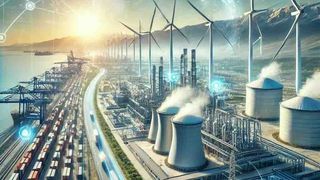EBRD’s vision for Central Asia: energy transition, infrastructure, and economic reforms


Toni Kryuger
Good news:
Grow your business with us
Advertise on Daryo.uzIndividual approach and exclusive materials
Ad-free site readingSubscribe
25 000 sum per month
Comments
To leave a comment, first